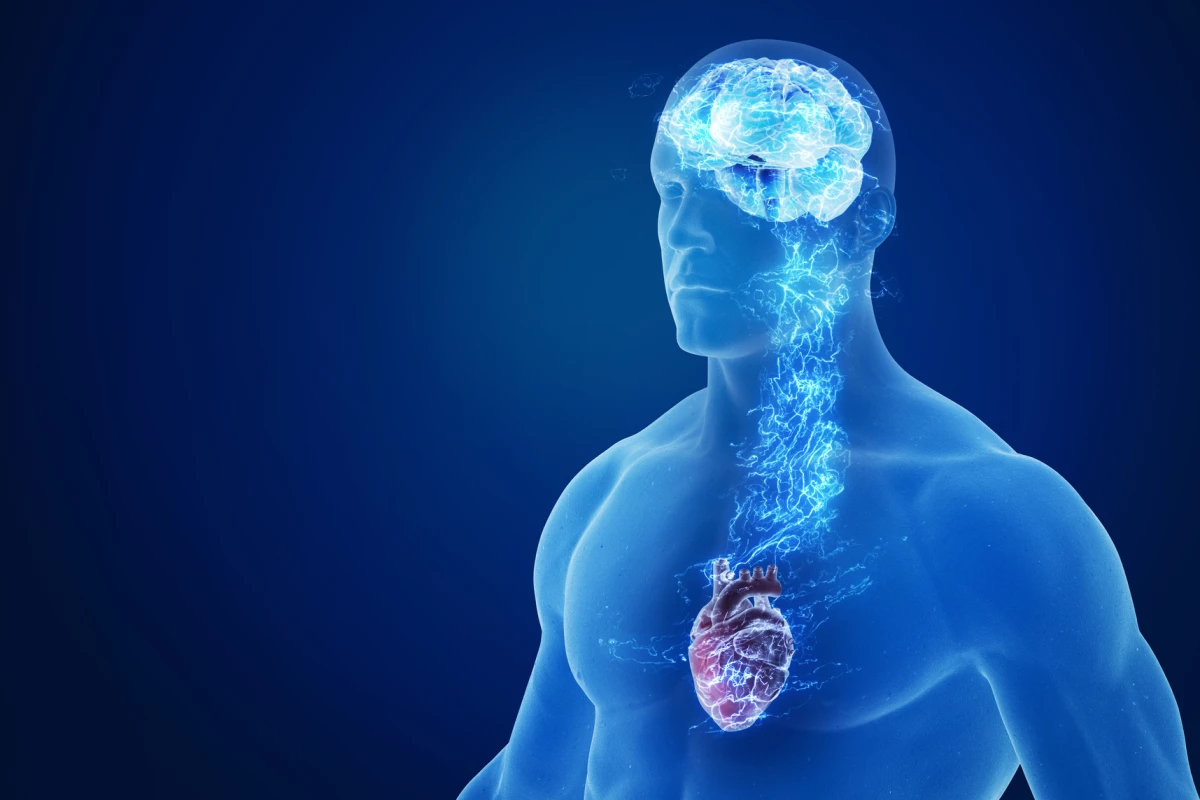Heart failure is a global health problem commonly complicated by sleep apnea, a co-morbidity that further reduces a person’s lifespan. A promising new drug has been developed that could treat heart failure and sleep apnea by targeting the nervous activity that drives both.
For people with heart failure, the prognosis is poor and mortality high despite recent advances in treatment. According to the National Institutes of Health, heart failure affects more than 64 million people worldwide, making it a major global public health priority.
Heart failure occurs when the heart muscle weakens and doesn’t pump effectively. The brain responds to heart failure by activating the body’s sympathetic nervous system, the “fight or flight” response, to stimulate the heart to pump more effectively. However, long-term stimulation over the long term, combined with sleep apnea, leads to a reduced life expectancy. Most patients die within five years of a diagnosis of heart failure.
The part of the brain that sends impulses to the heart also controls breathing. Central sleep apnea (CSA) – where breathing repeatedly stops during sleep because the brain doesn’t send proper signals to the respiratory muscles – is common in people with heart failure. Sleep apnea is thought to be caused by increased sensitivity in the peripheral chemoreceptors found in the carotid arteries, which detect changes in arterial blood oxygen (hypoxia) and initiate reflexes to return oxygen levels to normal. One receptor in particular, P2X3, is known to affect this reflexive response.
Other than treating the underlying causes of CSA, one of which is heart failure, current treatments for sleep apnea are limited to continuous positive airway pressure (CPAP), which uses mild air pressure to keep the airways open. But CPAP, which requires wearing a tight-fitting mask during sleep, is poorly tolerated.
Now, a promising new drug has been developed that targets the nerve activity that causes both heart failure and sleep apnea. Researchers from the University of Auckland in New Zealand tested the drug, known as AF-130, on rats with chronic heart failure and sleep apnea. They found that AF-130 acted as an effective P2X3 receptor antagonist, normalizing the body’s respiratory response to hypoxia and substantially improving the amount of blood pumped by the heart (cardiac output). Breathing disturbances were eliminated.
“This drug does offer benefit for heart failure, but it’s two for the price of one, in that it’s also relieving the apnea for which there is currently no drug, only CPAP, which is poorly tolerated,” said Julian Paton, corresponding author of the study.
AF-130 was also found to reduce systemic inflammation, reduce the weight of the heart, and prevent fluid from gathering in the lungs (pulmonary edema), a common side effect of heart failure. It’s the first drug to control the brain-to-heart nervous activity that drives heart failure and associated sleep apnea.
The study’s findings support the notion that P2X3 receptors in the carotid arteries play a key role in the pathological mechanisms underlying cardiovascular and respiratory diseases.
“Over recent decades, there have been several classes of drugs that have improved the prognosis of heart failure,” said cardiology consultant Dr Martin Stiles. “However, none of these drugs work in the way that this new agent does. So it is exciting to see a novel method that potentially reverses some features of heart failure.”
Even more promising, the drug is soon to be approved by the FDA, albeit for a different clinical use, which means that human trials might occur in the next couple of years.
The study was published in the journal Nature Communications.
Source: University of Auckland





